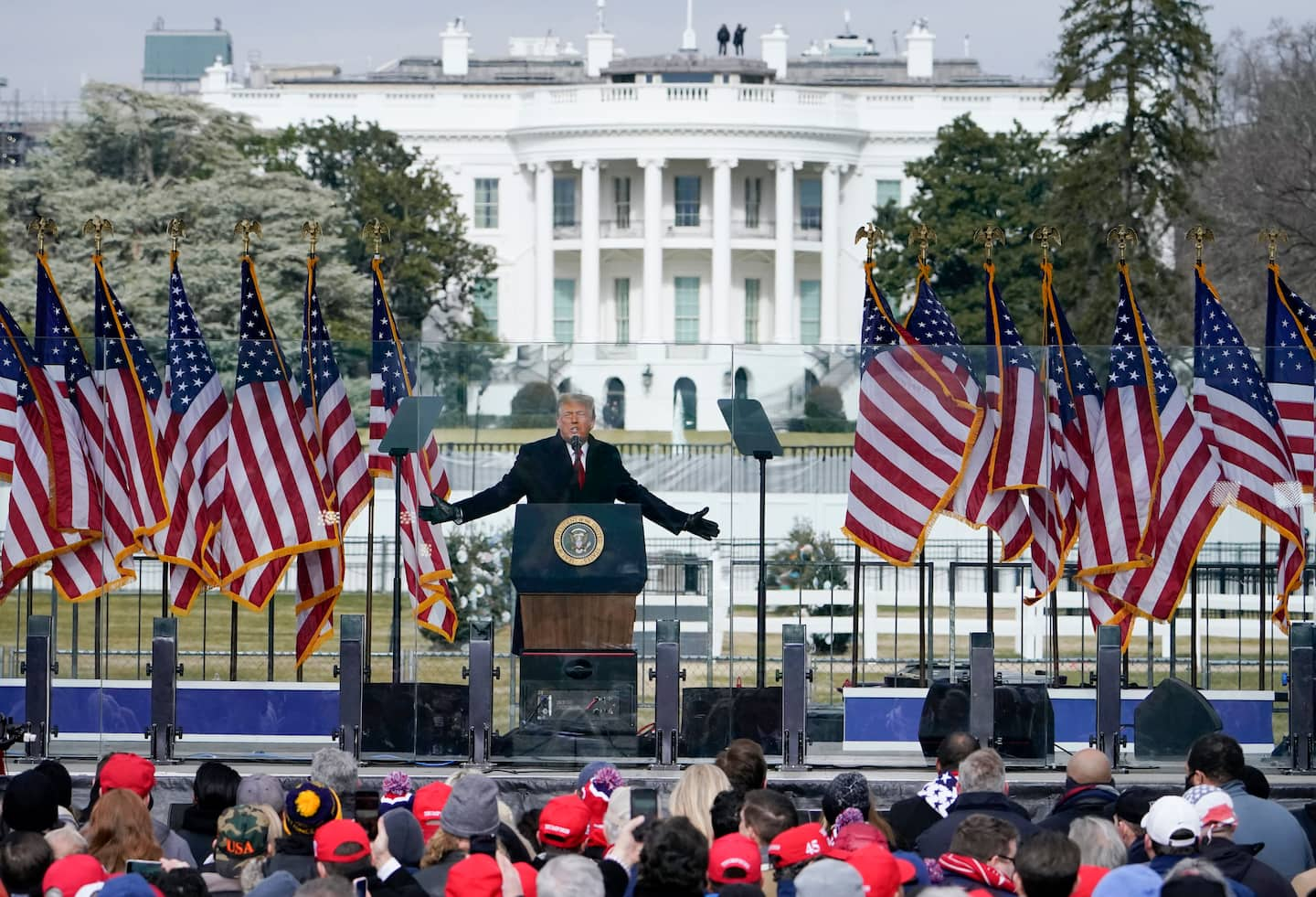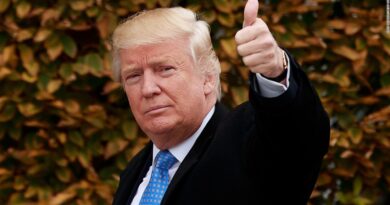Centering Trump’s impeachment defense on ‘fraud’ is both on brand and ill advised

After the election, Trump’s focus on fraud became something else. It was an emotional salve, yes, but it was also a financial engine, generating tens of millions of dollars for a loosely restricted political action committee. It was also a wild card, a claim that maybe, somewhere downstream, could end up letting Trump stay president for another four years.
That was one downstream possibility as Trump repeatedly falsely claimed that the 2020 election was somehow stolen. But the stream that the universe actually followed was one in which his claims whipped up a frenzy among his base centered on the untrue claim that the election had, in fact, been stolen — and led directly to a violent assault on the U.S. Capitol in an attempt to prevent Congress from confirming the reality of his defeat.
On a charge of incitement of an attempted insurrection, he was impeached last month. This month, his trial begins in the Senate, offering a chance for Trump to defend himself against the idea that a sitting president tried to foment an overthrow of a democratic election.
At least theoretically. Instead, it seems, Trump’s legal team — newly minted, after another set of lawyers walked toward the exit — will be cajoled into attempting to defend Trump on the grounds that there was rampant fraud in the 2020 presidential election. In other words, to first and foremost defend Trump’s defense mechanism.
This is a bad idea, for a lot of reasons.
The first and most obvious is that there is no credible evidence of significant fraud in the election. There are lots of insinuations, memes, debunked claims and formal affidavits making vague allegations, but there is nothing to show that even hundreds of votes nationally were cast illegally, much less the tens of thousands needed to call into question Trump’s electoral-vote loss. Basing a defense on something that’s already been shown not to be the case seems, at the outset, like a misfire.
More importantly, a focus on fraud in the Senate impeachment trial will do the one thing Trump should least want: force a public adjudication of the claims. Yes, exoneration in a trial focused on false fraud claims could be used to argue that those claims were themselves validated, as a savvy Post reader points out. But it also risks exposing the claims to unusual scrutiny.
So far, the idea that fraud occurred has been propagated through uncritical social media posts and by sycophantic conservative media figures. The mainstream media has challenged — and, indeed, picked apart — the claims Trump has championed. By bringing this nonsense up in the impeachment trial, Trump gives reality a chance at long last to hold those claims to account. Fox News and Newsmax will likely give short shrift to Democrats’ case against Trump, but it’s necessarily the case that an effort to prove fraud will draw a spotlight on the inconsistencies and falsehoods on which Trump’s case relies.
There’s something freeing about this trial for Trump, of course, a confidence born of knowing that the jury’s decision has already been made. There’s essentially no way that 17 Republican senators will vote to convict Trump on the incitement charge, meaning that he will again get to trumpet his exoneration from impeachment charges, this time to the rapt audience in the Mar-a-Lago dining room.
But a very good way to force some of those senators to waver in their support for Trump is to frame their choice as focusing on the unreliability of the 2020 election. Twenty Republican senators were themselves elected in November. By focusing on the idea that fraud was rampant, Trump is asking those senators to assert for the record that they are at least sympathetic to the idea that the election in which they won their positions was marred by fraudulent voting.
Of course, Trump and his allies insist that the only states in which such fraud occurred were ones that President Biden won. And only some of those states: No one has raised questions about Maine, for example, to the relief of newly reelected Sen. Susan Collins (R-Maine). But senators in other states are nonetheless playing a dangerous game, expressing sympathy for a claim that serves to undercut confidence in any election — including ones that they or their allies take part in the future. Introduce an unscrupulous opponent, and what’s to stop similar allegations from being made against them?
This is the biggest problem, of course. Trump’s indifference to the effects of his false claims has not diminished over the past month, clearly. But the damage done by them is substantial. This idea that American elections are riddled with fraudulent votes can simply lead to people shrugging at the idea that any election is reliable. And if Americans don’t have the confidence in their elections that they should, the path is cleared for any number of other efforts to claim power through means other than casting votes. Again, this is precisely what Trump did and exactly why he got impeached: He pushed his supporters to think that the election had already been undermined and therefore that other means for seizing power were ethically acceptable. By reinforcing that nonsense at this point, he would simply be increasing the damage he’s already done.
There’s no real need for Trump’s defense team to argue against the incitement charge, simply because they almost certainly already have the votes to acquit. They need to do enough to make that vote easy; they have to at least give their allies in the Senate a prima facie reason to declare that Trump didn’t actually incite the violence. But everyone involved knows that Trump’s team doesn’t need to and almost certainly won’t actually convince anyone of anything. So in practice Trump’s team could simply argue that, say, the violence at the Capitol was a function of a mind-control ray emanating from the top of the Smithsonian Castle. The result would probably be the same.
Instead of defending him against the most serious charge any president has faced, Trump is demanding that his team defend his pride. Instead of using the moment to rationalize his post-election rhetoric as harmless, he’s apparently hoping to use the platform provided by the trial to amplify the rhetoric that led to the violence in the first place.
*** This article has been archived for your research. The original version from The Washington Post can be found here ***


